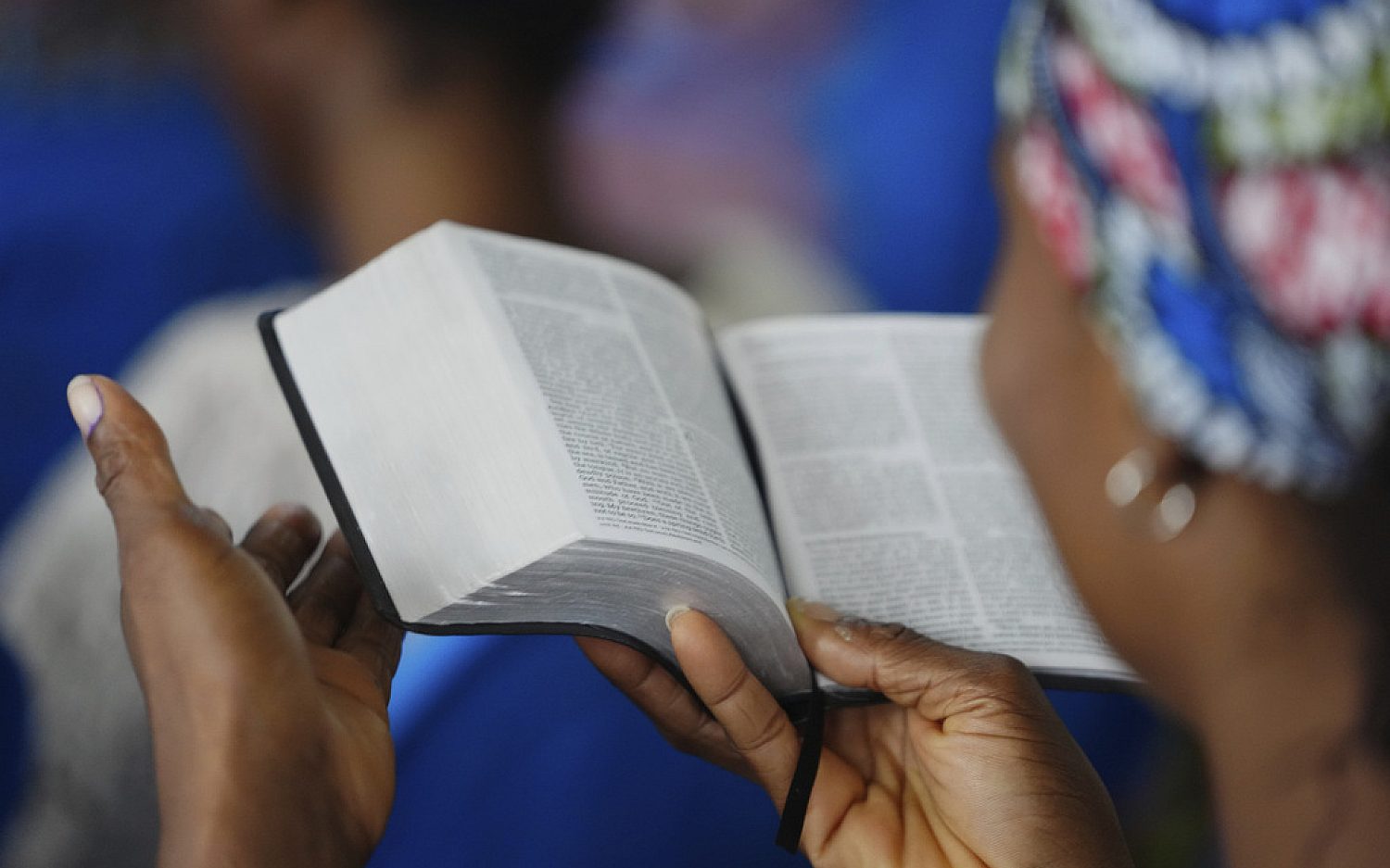Dinesh D'Souza avoids jail time
While showing mercy, the federal judge handling the case probed the moral reasons behind what the conservative commentator did
NEW YORK—Conservative author and filmmaker Dinesh D’Souza, 53, avoided jail on Tuesday when Federal District Judge Richard Berman sentenced him to five years of probation and a $30,000 fine, closing the book on nine months of dramatic court wrangling.
Berman chose to sentence below the federal guidelines for D’Souza’s crime, 10 to 16 months in prison, apparently in consideration that few defendants in D’Souza’s situation have gone to prison. D’Souza will spend the first eight months of his probation in a community confinement center in San Diego, Calif., where he lives; will attend weekly therapeutic counseling; and will do weekly community service teaching English to immigrants.
D’Souza pleaded guilty in May to orchestrating $20,000 in illegal straw donations for Republican U.S. Senate candidate Wendy Long, who lost in a landslide to incumbent Democrat Kirsten Gillibrand.
Before taking the plea bargain, D’Souza had filed a motion seeking to prove that the district attorney was selectively prosecuting him because of his conservative politics. That motion failed in court—the judge said there was “no evidence” of selective prosecution. D’Souza has also argued that he didn’t have criminal intent, a definition the judge rejected.
The sentencing hearing, before a packed courtroom, went unusually long, at 2½ hours, as the judge reviewed the evidence and heard lengthy statements from both the defense and the prosecution.
On the day of the hearing, D’Souza's ex-wife Dixie D’Souza filed a letter with the court, disputing the way she had been characterized in court and in court filings. She made multiple allegations against D’Souza to counter the many glowing pre-sentencing letters from his friends and colleagues. She alleged that at one point D’Souza, who she said was trained in karate, kicked her and knocked her to the ground. Benjamin Brafman, D’Souza’s lawyer, described her letter as 90 percent “patently false.” At one point, when D’Souza was making his pre-sentencing statement to the judge, he began to address his ex-wife’s allegations, but Brafman quickly counseled him to avoid it. “Never get sentenced while you’re in the midst of a divorce,” Brafman said.
Berman, formerly a family court judge, seemed to know how to navigate the personal conflicts. Still, in the first half of the hearing, it looked like D’Souza was on his way to prison. Berman berated D’Souza for disrespecting the court and the judicial process in his media appearances, even as he expressed contrition to the court. In several TV appearances after pleading guilty to the crime, D’Souza raised the issue of being selectively prosecuted and argued it was of a piece with other abuses of power in the Obama administration. D’Souza, in interviews, also questioned the judge’s definition of criminal intent, when he had already pleaded guilty to it. “Lady Justice is sort of taking down her blindfold … winking on her friends and putting the evil eye on her enemies,” D’Souza said in one interview.
“I’m not sure, Mr. D’Souza, that you get it,” Berman said in court. “And it’s still hard for me to discern any personal acceptance of responsibility in this case. … I’m very confident Lady Justice is doing her job and she’s not taking her blindfold off to target Dinesh D’Souza.”
Berman called D’Souza’s remarks on television, “Nonsense. Spin is what that is.” The interviews “do not promote respect for the law.”
The judge also criticized the pre-sentencing filing of Tyler Vawser, who made $10,000 in straw donations on behalf of himself and his wife, for his silence about his own moral or legal culpability as he extolled D'Souza. Vawser was D’Souza’s personal assistant at The King’s College in New York City, and is currently the college’s director of marketing and communications. The prosecution granted Vawser immunity, and he was going to be one of the government’s witnesses. “How is that friendship, to implicate oneself and one’s spouse in a possible election crime?” Berman asked, calling it a “staggering, enormous risk.”
At several points during the judge’s remarks, Brafman had his head in his hands, and when he began his statement to the judge, he said he had a “steep hill to climb” to convince him not to sentence D’Souza to prison. Brafman told the judge that he begged D’Souza not to do the television interviews, but said nevertheless that a “thoughtless” interview should not send D’Souza to jail.
Despite the post-plea provocations that could have easily soured many federal judges, Berman showed D’Souza some measure of mercy. The judge noted he was pleased the sentencing guidelines were no longer required, and he seemed more interested in D’Souza’s personal psychology. He repeatedly asked D’Souza why, at the pinnacle of his career, he would risk everything and expose his close friends to criminal prosecution. He said it seemed so “self destructive.”
Before Berman delivered the sentence, he offered his personal assessment of D'Souza: “He’s a talker. He’s almost a compulsive talker. I don’t think he’s a listener.” Then Berman told the court that he didn’t think a prison sentence was necessary.
Afterward D’Souza said he was “relieved.” Brafman called it an “enlightened sentence.”
D’Souza will report back to the court Oct. 15 for a follow-up hearing.
An actual newsletter worth subscribing to instead of just a collection of links. —Adam
Sign up to receive The Sift email newsletter each weekday morning for the latest headlines from WORLD’s breaking news team.





Please wait while we load the latest comments...
Comments
Please register, subscribe, or log in to comment on this article.